Recent Blog Posts
Understanding Secured Vs. Unsecured Debts During Bankruptcy
 Most people have debts of some sort. Certain types of debts may be necessary to own a home or vehicle, and other debts may be used to make purchases or receive education or medical treatment. While debts may be manageable for many people, there are situations where they can cause significant financial difficulty, especially if a person or family encounters issues that affect their income and ability to make payments. In these cases, bankruptcy may be an option that will allow for the elimination of debts. However, those who are looking to receive debt relief will need to understand how different types of debts are classified and how the type of bankruptcy they pursue will affect the debts they owe.
Most people have debts of some sort. Certain types of debts may be necessary to own a home or vehicle, and other debts may be used to make purchases or receive education or medical treatment. While debts may be manageable for many people, there are situations where they can cause significant financial difficulty, especially if a person or family encounters issues that affect their income and ability to make payments. In these cases, bankruptcy may be an option that will allow for the elimination of debts. However, those who are looking to receive debt relief will need to understand how different types of debts are classified and how the type of bankruptcy they pursue will affect the debts they owe.
Addressing Secured and Unsecured Debts Through Chapter 7 or Chapter 13 Bankruptcy
Debts generally fall into one of two categories:
How Can Filing for Bankruptcy Prevent Home Foreclosure?
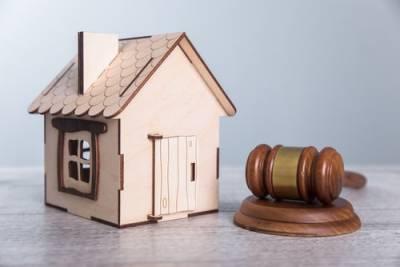 If you are a homeowner who is experiencing financial difficulties, the possibility of foreclosure is likely one of your largest concerns. If you default on your mortgage, your lender may begin foreclosure proceedings, and if you do not make up the missed payments, you could lose ownership of your home. Fortunately, there are multiple options available that may provide you with debt relief, including filing for bankruptcy. With the help of an attorney, you can determine the best way to proceed, and you can take steps to prevent foreclosure while regaining financial stability.
If you are a homeowner who is experiencing financial difficulties, the possibility of foreclosure is likely one of your largest concerns. If you default on your mortgage, your lender may begin foreclosure proceedings, and if you do not make up the missed payments, you could lose ownership of your home. Fortunately, there are multiple options available that may provide you with debt relief, including filing for bankruptcy. With the help of an attorney, you can determine the best way to proceed, and you can take steps to prevent foreclosure while regaining financial stability.
Addressing Foreclosure Through Chapter 7 or Chapter 13 Bankruptcy
The first thing to understand is that filing for bankruptcy will allow you to stop foreclosure proceedings. After a bankruptcy petition is filed, an automatic stay will be put in place that prevents creditors from taking any actions to enforce your obligations, including proceeding with lawsuits to recover debts, repossessing property, or foreclosing on your home. Taking action to file for bankruptcy as soon as you are aware of foreclosure proceedings will make sure you can address your debts and determine the best course of action to receive relief.
When Can a Bankruptcy Be Converted From Chapter 13 to Chapter 7?
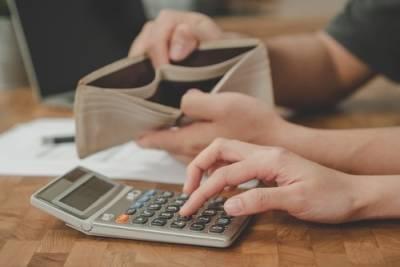 When a person is determining their options for receiving relief from their debts and getting a fresh financial start, they may pursue one of two possible methods of filing for bankruptcy. While Chapter 7 bankruptcy is often the preferred method, since it will allow for the elimination of many different types of debts within a few months, this option is not always available. If a person does not qualify for Chapter 7, or if they wish to maintain ownership of their home or other assets, they may opt for a Chapter 13 bankruptcy. During the bankruptcy process, there are a variety of situations where a person who had originally planned to pursue a Chapter 13 bankruptcy may decide to convert their case to a Chapter 7 bankruptcy. Understanding when this is possible will help a debtor make the best use of the available options for receiving relief from their debts.
When a person is determining their options for receiving relief from their debts and getting a fresh financial start, they may pursue one of two possible methods of filing for bankruptcy. While Chapter 7 bankruptcy is often the preferred method, since it will allow for the elimination of many different types of debts within a few months, this option is not always available. If a person does not qualify for Chapter 7, or if they wish to maintain ownership of their home or other assets, they may opt for a Chapter 13 bankruptcy. During the bankruptcy process, there are a variety of situations where a person who had originally planned to pursue a Chapter 13 bankruptcy may decide to convert their case to a Chapter 7 bankruptcy. Understanding when this is possible will help a debtor make the best use of the available options for receiving relief from their debts.
Can I Receive a Refund if My Chapter 13 Bankruptcy Case Is Dismissed?
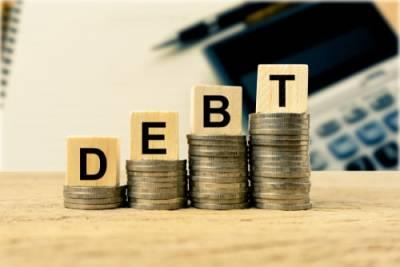 People who are struggling to repay the debts they owe may be able to receive relief by filing for bankruptcy. While there are different types of bankruptcy that may apply in different situations, Chapter 13 bankruptcy is usually the preferred option for those who wish to avoid losing their homes or other property they own. However, these debtors will be required to make ongoing monthly payments in a repayment plan that will last from three to five years. If they experience financial difficulties that cause them to be unable to make payments, their bankruptcy case may be dismissed. In these situations, debtors may wonder about the money that they already have paid into the repayment plan and whether some of these payments may be refunded to them.
People who are struggling to repay the debts they owe may be able to receive relief by filing for bankruptcy. While there are different types of bankruptcy that may apply in different situations, Chapter 13 bankruptcy is usually the preferred option for those who wish to avoid losing their homes or other property they own. However, these debtors will be required to make ongoing monthly payments in a repayment plan that will last from three to five years. If they experience financial difficulties that cause them to be unable to make payments, their bankruptcy case may be dismissed. In these situations, debtors may wonder about the money that they already have paid into the repayment plan and whether some of these payments may be refunded to them.
Procedures Followed During the Dismissal of a Chapter 13 Case
If a Chapter 13 bankruptcy is dismissed, bankruptcy protections will no longer apply, and creditors may take action to collect debts owed by the debtor. In some cases, a debtor may choose to convert their case to a Chapter 7 bankruptcy and receive a discharge of their outstanding debts. However, this raises the question of what will happen to funds that were paid to the trustee in the Chapter 13 case but had not yet been distributed to the creditors in the repayment plan.
5 Things You Should Avoid During Your Bankruptcy Case
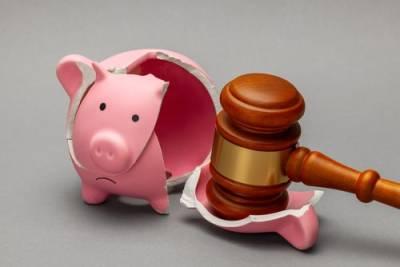 If you have large debts that you are struggling to repay, or if you have experienced financial issues that affect your ability to make ongoing payments, bankruptcy may be the best option in your situation. By eliminating debts through Chapter 7 bankruptcy or consolidating debts into a single affordable payment plan through Chapter 13 bankruptcy, you can regain financial stability and take steps to avoid financial problems in the future. However, it is important to understand how certain actions that you may take during the bankruptcy process may affect your case. By avoiding the following, you can make sure you will be able to properly address your debts and move forward successfully:
If you have large debts that you are struggling to repay, or if you have experienced financial issues that affect your ability to make ongoing payments, bankruptcy may be the best option in your situation. By eliminating debts through Chapter 7 bankruptcy or consolidating debts into a single affordable payment plan through Chapter 13 bankruptcy, you can regain financial stability and take steps to avoid financial problems in the future. However, it is important to understand how certain actions that you may take during the bankruptcy process may affect your case. By avoiding the following, you can make sure you will be able to properly address your debts and move forward successfully:
-
Making large purchases or generating new debts - In some cases, people who plan to file for bankruptcy may believe that they should use as much of their debts as possible since those debts will be wiped out once they complete the bankruptcy process. A person may max out their credit cards, take out new loans, or purchase items without the intent of paying the full amount owed. However, these actions may be considered bankruptcy fraud, and they could result in the dismissal of a bankruptcy case because a court believes that a person intended to abuse the bankruptcy process. In some cases, a person may even face criminal charges for these actions. It is best to avoid creating new debts or making significant purchases within 90 days before you file for bankruptcy.
Read Our Top 10 Bankruptcy Blogs For 2021
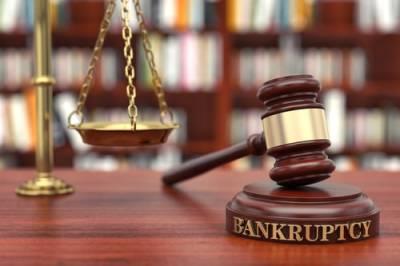 At the Law Offices of Chance M. McGhee, we regularly publish blogs addressing a wide variety of topics related to bankruptcy, foreclosure, and debt relief. We work to provide potential clients with helpful information about their options for addressing and eliminating debts while protecting their assets and ensuring that they can maintain financial stability. We wanted to highlight the most-read blogs of 2021, and these articles demonstrate the knowledge and assistance that we offer to people in cases involving bankruptcy.
At the Law Offices of Chance M. McGhee, we regularly publish blogs addressing a wide variety of topics related to bankruptcy, foreclosure, and debt relief. We work to provide potential clients with helpful information about their options for addressing and eliminating debts while protecting their assets and ensuring that they can maintain financial stability. We wanted to highlight the most-read blogs of 2021, and these articles demonstrate the knowledge and assistance that we offer to people in cases involving bankruptcy.
-
Can I Keep My Car if I File for a Texas Bankruptcy? - In addition to looking at the options for reaffirming or redeeming a car loan during the bankruptcy process, we recently updated this blog with information about when a “cramdown” may be used to reduce the amount owed on these types of loans.
Should I Reaffirm a Loan During Bankruptcy?
 While bankruptcy can provide much-needed relief from debts, it may also affect a person’s ability to maintain ownership of different types of property. While a person can use bankruptcy to discharge multiple different types of debts, the elimination of secured debts will likely result in the repossession of the property used as collateral in these debts. To avoid this, a debtor may be able to reaffirm certain loans. However, it is important to understand the advantages and disadvantages of doing so.
While bankruptcy can provide much-needed relief from debts, it may also affect a person’s ability to maintain ownership of different types of property. While a person can use bankruptcy to discharge multiple different types of debts, the elimination of secured debts will likely result in the repossession of the property used as collateral in these debts. To avoid this, a debtor may be able to reaffirm certain loans. However, it is important to understand the advantages and disadvantages of doing so.
Pros and Cons of Reaffirmation
Property such as vehicles or appliances may be seized by creditors if a debtor fails to make payments on a loan. By entering into a reaffirmation agreement during bankruptcy, a debtor can prevent these types of repossessions. For a reaffirmation agreement to be valid, a person will usually need to catch up on any missed payments, and they will need to submit the agreement in court during the bankruptcy process. Reaffirmation is most commonly used during a Chapter 7 bankruptcy.
How Can Bankruptcy Address Delinquent Property Taxes?
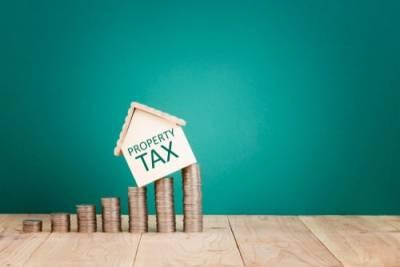 If your family has experienced financial difficulties, such as the loss of a job, large medical expenses, or a disability, you may be struggling to pay certain types of debts. If you are a homeowner, you may have gotten behind on your mortgage payments as well as other expenses, including property taxes. Unfortunately, nonpayment of property taxes can lead to a number of issues that may affect ownership of your home, including property tax liens or different types of foreclosure. While bankruptcy may be an option for addressing property taxes and other debts, it is important to understand your options and the best steps you can take to ensure that you can maintain financial stability in the future.
If your family has experienced financial difficulties, such as the loss of a job, large medical expenses, or a disability, you may be struggling to pay certain types of debts. If you are a homeowner, you may have gotten behind on your mortgage payments as well as other expenses, including property taxes. Unfortunately, nonpayment of property taxes can lead to a number of issues that may affect ownership of your home, including property tax liens or different types of foreclosure. While bankruptcy may be an option for addressing property taxes and other debts, it is important to understand your options and the best steps you can take to ensure that you can maintain financial stability in the future.
Addressing Property Taxes Through Chapter 7 or Chapter 13 Bankruptcy
If you have not paid property taxes for multiple years, your local or county government may pursue a property tax foreclosure. However, in many cases, you are more likely to face a foreclosure by your mortgage lender. Since payment of property taxes is a requirement in a mortgage loan, failure to do so may be considered a violation of the loan agreement. If a mortgage lender has paid property taxes to avoid a property tax foreclosure, they may choose to foreclose on the property to seek repayment for this amount.
Will I Be Able to Ever Buy a House if I File for Bankruptcy?
 Many people who are struggling with overwhelming debt hesitate to file for bankruptcy, even when it is their best option for debt relief. They worry that having a bankruptcy on their credit report will harm any chance they have of ever owning their own home. The reality is, however, that having delinquent payments and/or charged-off accounts on your credit report is just as – if not more – harmful and could torpedo any plans of obtaining approval for a mortgage. The following are some steps you can take to help obtain that approval in your post-bankruptcy life.
Many people who are struggling with overwhelming debt hesitate to file for bankruptcy, even when it is their best option for debt relief. They worry that having a bankruptcy on their credit report will harm any chance they have of ever owning their own home. The reality is, however, that having delinquent payments and/or charged-off accounts on your credit report is just as – if not more – harmful and could torpedo any plans of obtaining approval for a mortgage. The following are some steps you can take to help obtain that approval in your post-bankruptcy life.
Rebuilding Credit Is Key
Once your bankruptcy petition has been completed and your debts discharged, although your credit score will likely be low, think of this as starting out with a new and clean financial slate. Rebuilding your credit should be your goal.
Start by looking over your credit report. Make sure that it is correct and that all of the items that were discharged in your bankruptcy have been removed from your credit report. Also, make sure there are no other derogatory items that should not be there.
What Are the Credit Counseling Requirements During Bankruptcy?
 If you are considering bankruptcy, you have most likely been placed in a difficult financial position due to circumstances beyond your control. While most people have some debts, they will often do everything they can to meet their financial obligations. However, a person or family may encounter issues such as the unexpected loss of a job or a serious illness that leads to large medical bills while also affecting a person’s ability to earn an income. In these cases, debts may become unmanageable, and bankruptcy may be the best option for debt relief. Even though a person or family will usually be aware of the reasons why they are in this situation, a debtor will be required to receive credit counseling during the bankruptcy process.
If you are considering bankruptcy, you have most likely been placed in a difficult financial position due to circumstances beyond your control. While most people have some debts, they will often do everything they can to meet their financial obligations. However, a person or family may encounter issues such as the unexpected loss of a job or a serious illness that leads to large medical bills while also affecting a person’s ability to earn an income. In these cases, debts may become unmanageable, and bankruptcy may be the best option for debt relief. Even though a person or family will usually be aware of the reasons why they are in this situation, a debtor will be required to receive credit counseling during the bankruptcy process.
Credit Counseling and Debtor Education
The U.S. Bankruptcy Code requires debtors to complete two types of counseling during the bankruptcy process. These forms of education are meant to help debtors understand the issues that may have led them to experience financial difficulties and encourage them to follow practices that will allow them to maintain financial stability in the future. Prior to filing for bankruptcy, a debtor will need to complete credit counseling, and before discharging their debts, they will be required to take a debtor education course.






